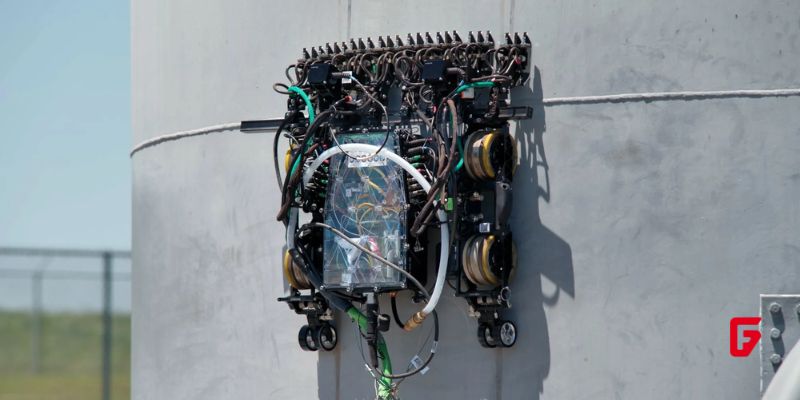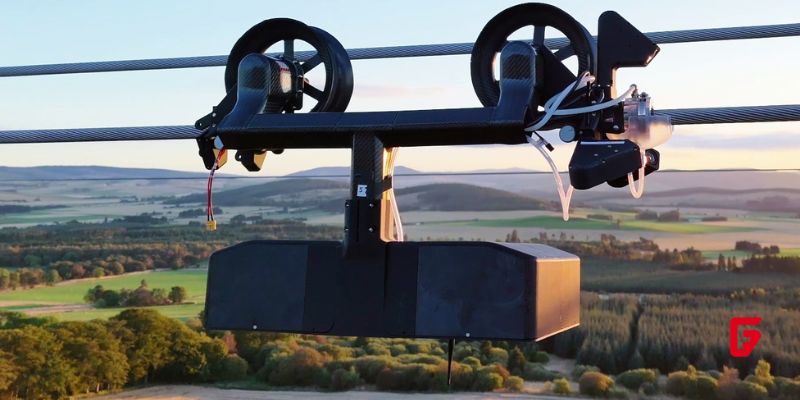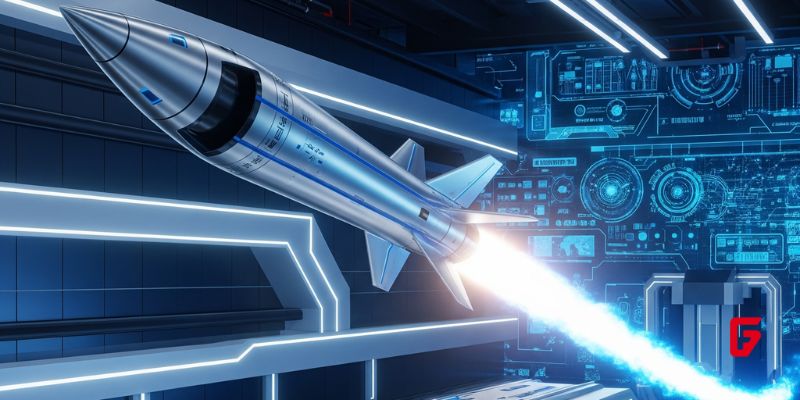Exclusive merchandise products have always been associated with exclusivity, prestige, and high value. From designer fashion and jewelry to fine art and antique collectibles, the exclusive merchandise industry has long relied on physical assets to convey their status and appeal to consumers.
According to Chiara Ferragni, Italian fashion influencer and entrepreneur, “NFTs are the future of the luxury industry, creating a new dimension of value for consumers by enabling digital ownership of physical goods.”
However, the rise of digital assets and blockchain technology is now offering new opportunities for the industry to transform the way it produces, distributes, and sells luxury goods. Inevitably, the businesses that refuse to go with the tide will have to be left behind in the business industry.
One of the most promising innovations in this space is Non-Fungible Tokens (NFTs), a type of digital asset that uses blockchain technology to verify ownership and authenticity. The potential of NFTs extends far beyond the art world and into other sectors, and industries such as fashion, jewellery, and collectibles industries are not excluded.
This article explores the ways in which NFTs can transform the future of high-end products. We will discuss the challenges facing the luxury goods industry, and how NFTs can provide solutions to some of these challenges.
We will also examine the advantages of NFTs, such as enabling digital ownership of physical goods, enhancing the authentication of luxury goods, and revolutionizing the way high-end products are collected. Firstly, what are NFTs?
Non-Fungible Tokens (NFTs) are digital assets that are unique and cannot be replicated. NFTs are created using blockchain technology, which allows for secure verification of ownership and authenticity.
Unlike traditional cryptocurrencies like Bitcoin, NFTs cannot be exchanged for an equal value or broken down into smaller units. Instead, each NFT represents a specific asset, such as a piece of art, a music album, a tweet, or a video clip.
NFTs work by using smart contracts, which are self-executing agreements that define the terms and conditions of the asset being sold. These contracts are stored on the blockchain, which acts as a decentralized ledger that records all transactions and ownership changes. This makes it possible to track the ownership and provenance of an NFT, ensuring that it is not a copy or a fake.
The value of an NFT is determined by its scarcity, uniqueness, and demand. Since each NFT is one-of-a-kind, the owner of an NFT has exclusive rights to that asset. This makes NFTs highly valuable in the digital art world, where they have been used to sell digital artworks for millions of dollars.
NFTs are also being used in other industries, such as sports memorabilia, gaming, and music, where they can provide new ways for fans and collectors to engage with their favourite stars and creators. In the next few years, the luxury goods industry will start integrating NFTs for product authentication.
NFTs are becoming increasingly important in the high-end products industry due to their ability to provide solutions to some of the industry’s most pressing challenges. One of the main challenges facing the luxury goods industry is the issue of counterfeiting.
Counterfeit high-end products are a major problem for the industry, costing companies billions of dollars in lost revenue each year. NFTs can provide a solution to this problem by enabling the verification and authentication of luxury goods.
NFTs can also help to enhance the transparency and traceability of luxury goods. With NFTs, it is possible to track the ownership and provenance of a luxury item, ensuring that it is genuine and has not been tampered with. This can help to build trust and confidence among consumers, who are increasingly concerned about the ethical and environmental impact of the products they buy.
Another important benefit of NFTs in the high-end products industry is the ability to provide new ways for consumers to engage with luxury brands. NFTs can be used to create unique digital experiences, such as virtual showrooms, immersive product demonstrations, and interactive brand experiences.
This can help to enhance the emotional connection between consumers and luxury brands, leading to increased brand loyalty and advocacy. Overall, NFTs have the potential to transform the exclusive merchandise industry by enabling new levels of authenticity, transparency, and engagement. As more luxury brands begin to explore the possibilities of NFTs, we can expect to see new and innovative use cases for this exciting technology.
Implementing NFTs in the high-end products industry requires a certain level of technical expertise and infrastructure. Luxury goods companies may need to partner with technology companies to develop and implement NFTs. This could be a challenge for some companies that may not have the resources or expertise to do so.
Implementing NFTs requires investment in technology and infrastructure, which can be costly. This could be a barrier for some high-end products companies, especially smaller ones with limited resources.
NFTs are still a relatively new technology, and some industry players may be hesitant to adopt them. Ensuring widespread adoption and acceptance of NFTs in the exclusive merchandise industry may require education and awareness campaigns, as well as collaboration between different stakeholders in the industry.
There are concerns around the environmental impact of NFTs, particularly around their energy consumption and carbon footprint.
Addressing these concerns will be important in ensuring that NFTs are seen as a sustainable and responsible solution for the luxury products industry. This may require the development of more environmentally-friendly NFTs or the implementation of offsetting measures to reduce their impact.
NFTs have the potential to revolutionize the way luxury products are authenticated. By providing a unique digital signature, NFTs can help to verify the authenticity of high-end products and combat the problem of counterfeit products that plague the industry.
One-way NFTs can help authenticate luxury goods is by creating a unique digital identity for each item. Each luxury product can be associated with a unique NFT that contains information about the product’s origin, history, and ownership. This can help to verify that a product is genuine and has not been tampered with or duplicated.
NFTs can also help to track ownership and provenance of luxury goods, which is critical for ensuring their authenticity. By storing ownership information on the blockchain, NFTs can help to create an unbreakable chain of custody for luxury products. This can be particularly useful for high-value items such as artwork, where ownership can be difficult to establish.
Another way NFTs can help authenticate high-end products is by providing enhanced transparency in the supply chain. By tracking the movement of goods from production to delivery, NFTs can help to ensure that luxury products are ethically sourced and produced. This can help to build trust with consumers and ensure that luxury products are not associated with unethical practices such as child labour or environmental damage.
NFTs have the potential to transform the way luxury goods are authenticated by providing a unique digital signature that can be used to verify authenticity, track ownership and provenance, and enhance transparency in the supply chain. This can help to combat the problem of counterfeit products and ensure that luxury products are ethically sourced and produced, building trust with consumers and protecting the reputation of the industry.
One of the most exciting potential applications of NFTs in the luxury goods industry is enabling digital ownership of physical goods. This would allow consumers to own unique digital assets that represent ownership of a particular luxury item, even if they don’t physically possess the item.
NFTs can enable digital ownership of high-end products by creating a unique digital asset that represents ownership of a particular item. This digital asset can be stored on the blockchain and linked to the physical item, creating a digital representation of the item that can be bought, sold, or traded. This allows consumers to own a digital asset that represents ownership of the physical item, even if they don’t have possession of it.
By enabling digital ownership of luxury products, NFTs can unlock a new market for luxury items, especially in the digital realm. Consumers can buy and sell digital assets that represent ownership of luxury goods, creating new opportunities for collectors, investors, and enthusiasts.
NFTs can also enable fractional ownership of high-end products, which allows multiple owners to share ownership of a single item. This could make luxury items more accessible to a wider range of consumers who may not be able to afford to buy the entire item themselves.
NFTs have more than enough potential to enable digital ownership of luxury goods, creating new opportunities for collectors, investors, and enthusiasts. This could unlock a new market for high-end products, especially in the digital realm, and make luxury items more accessible to a wider range of consumers.
NFTs can help to verify the authenticity of luxury goods, combat the problem of counterfeit products, and enable digital ownership of physical goods. NFTs can also enhance transparency in the supply chain and improve traceability, which is increasingly important for consumers who value ethical and sustainable practices.
According to Chiara Ferragni, Italian fashion influencer and entrepreneur, “NFTs are the future of the luxury industry, creating a new dimension of value for consumers by enabling digital ownership of physical goods.”
As the high-end products industry continues to evolve, NFTs represent a significant opportunity for brands to innovate and differentiate themselves in a crowded market. However, there are also challenges that must be overcome, including the need for standardization, education, and adoption across the industry.
Ian Scarffe is a serial entrepreneur, investor, key opinion leader and Blockchain consultant with business experience from around the world. An expert in Startup, Investment, Fintech, Web3 and Blockchain industries. Ian currently consults and advises for a range of multi-million dollar companies. Ian’s overall mission is to foster a society of economically independent individuals who are engaged citizens, contributing to the improvement of their communities across the world.

You.com raises $50M Series B to launch its AI productivity engine, redefining search for knowledge workers and enterprises.

Throne’s AI-powered toilet device uses computer vision to analyze gut health at home, offering privacy-focused, real-time health insights and early detection.

Gecko Robotics becomes a unicorn with $125M for AI-powered wall-climbing robots, revolutionizing infrastructure safety and industrial inspections.

Wisq secures $15M and introduces HRLM, the first AI language model designed for HR, promising smarter, faster, and more human HR operations.

Cluely’s ARR skyrocketed to $7 million in a week after launching its enterprise AI notetaker, but open-source competitors like Glass are quickly gaining ground.

Meta is testing AI chatbots that message users first, changing how we interact on Instagram, WhatsApp, and Messenger.

Deeto’s $12.5M Series A funding fuels its AI-native platform, redefining the B2B buyer journey through authentic customer-led growth and smarter sales enablement.

Explore how Formant F3 brings generative AI and agentic reasoning to robot operations, enabling smarter, more autonomous robotics management for enterprises.

Peec AI lands €7M to empower brands with analytics for AI search visibility, offering tools for performance insights, competitor benchmarking, and mention tracking.

AssetCool has secured £10M in Series A funding to scale its robotic grid upgrade technology, using advanced coatings and AI-powered robots to boost power line capacity and efficiency worldwide.

Nautica Technologies secures $4M to launch autonomous robots that clean ship hulls, helping the maritime industry cut emissions and costs.

Castelion, founded by SpaceX veterans, lands $350M to revolutionize hypersonic missile manufacturing—faster, scalable, and cost-effective solutions for defense.
futureTEKnow is focused on identifying and promoting creators, disruptors and innovators, and serving as a vital resource for those interested in the latest advancements in technology.
© 2025 All Rights Reserved.
To provide the best experiences, we use technologies like cookies to store and/or access device information. Consenting to these technologies will allow us to process data such as browsing behavior or unique IDs on this site. Thanks for visiting futureTEKnow.